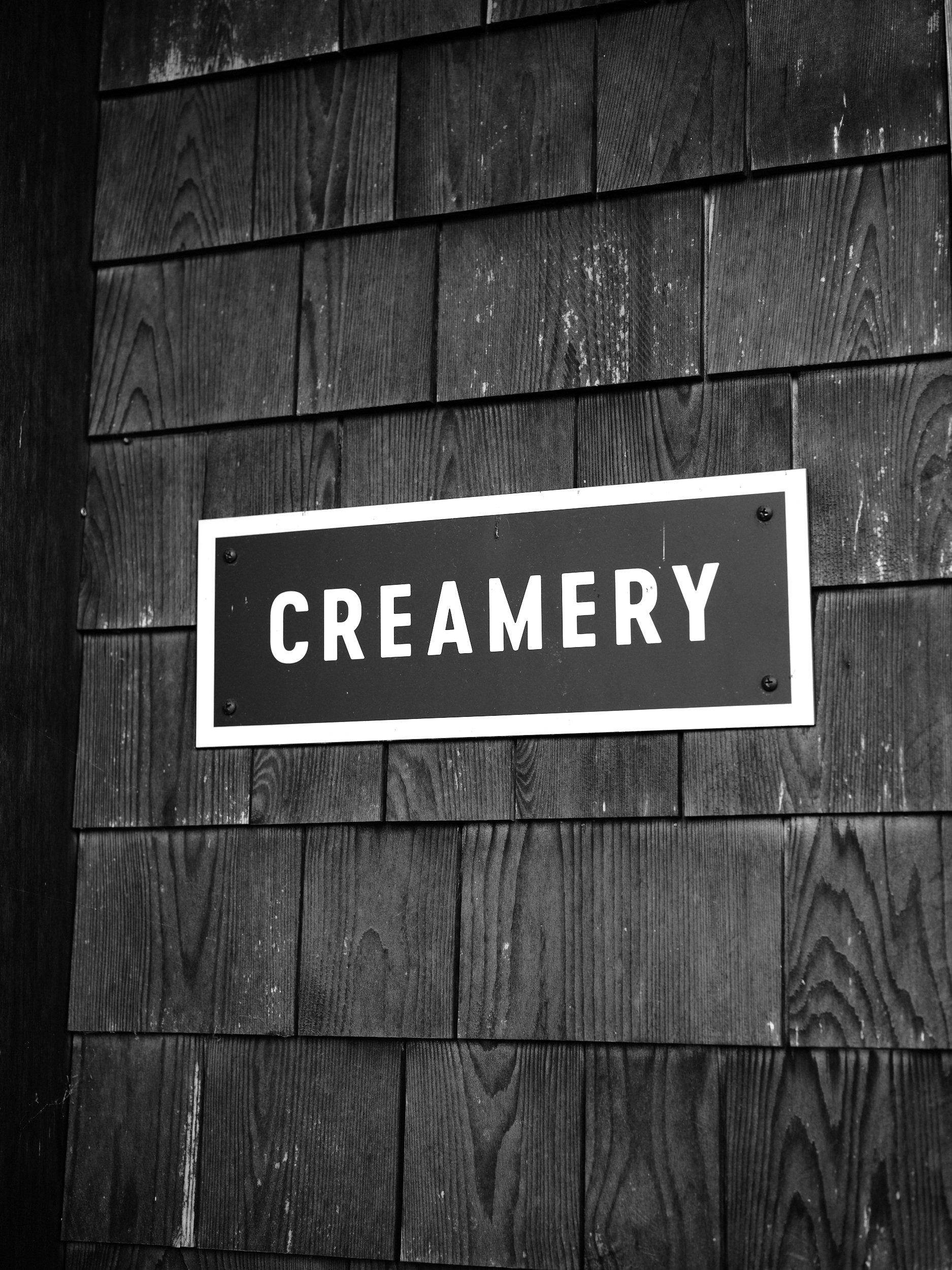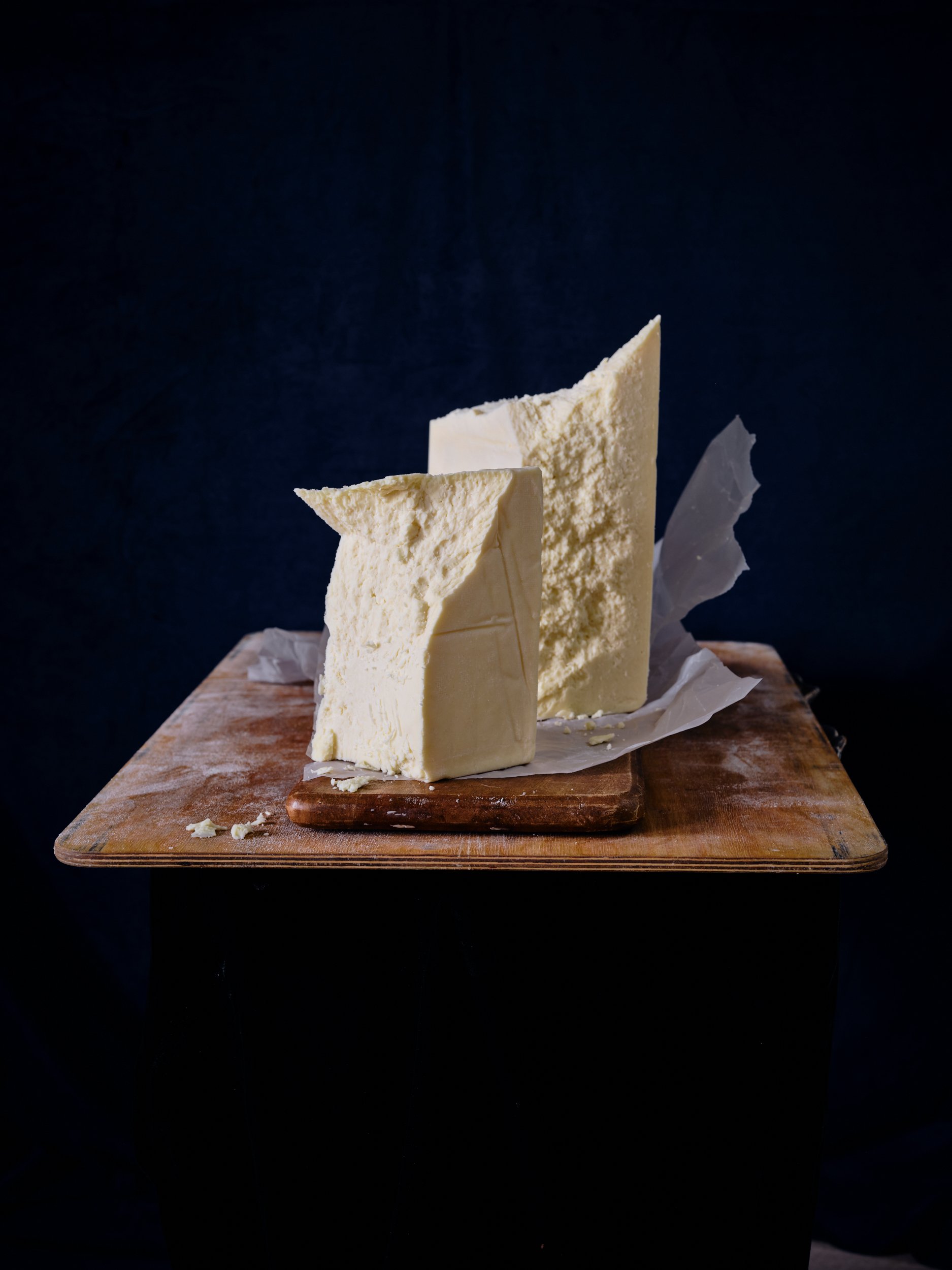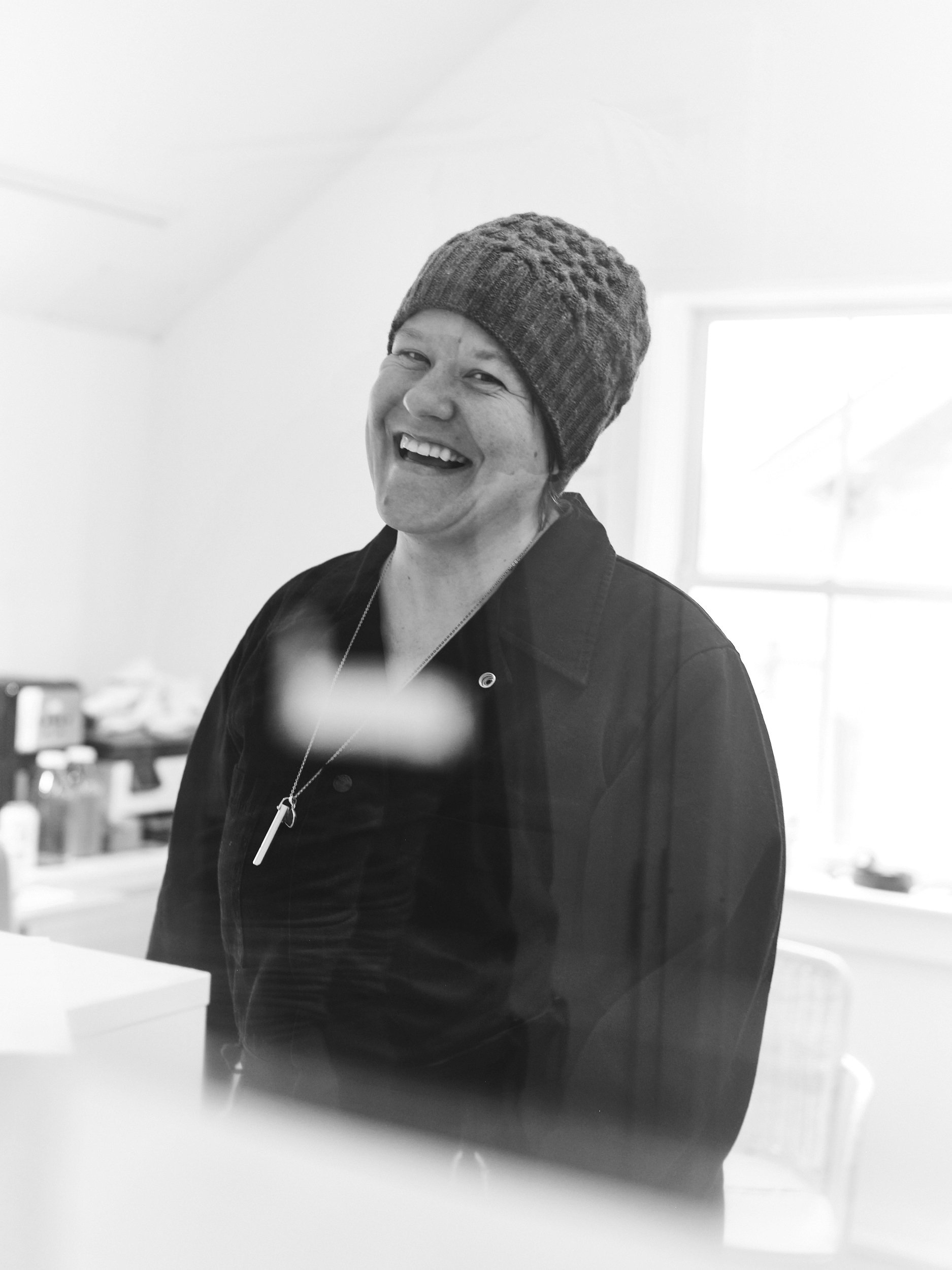banneker cheese
Our stirred-curd pressed cheese
The name "Banneker" carries a profound connection to the legacy of Benjamin Banneker, a black figure of historical significance is beautifully portrayed in the poem Banneker. Written by Rita Dove, who served as the first Black Poet Laureate of the United States from 1993 to 1995, as we celebrate the flavors and textures of this cheese, we pay homage to the rich narrative that inspired its name. In the context of Dove's poem, the name Banneker on our cheese becomes more than a label—it becomes a bridge to the past, a connection that resonates with the struggles and triumphs of those who came before us. In her poem, Dove paints the final years of Banneker’s life: at his pastoral farm in Maryland, he grows slowly outraged as the politicians of Washington, D.C. – a city he helped design – maintain their support for slavery. In a world that’s missing Black farmers, Dove and Banneker remind us what it means to remain vocal and thoughtful within our own corner of the world.
Banneker, our stirred curd, pressed, certified organic cheese, takes inspiration from the rich tradition of cheddar, yet delicately sidesteps the conventional cheddaring process. Banneker’s cheese-making journey begins on our Martha's Vineyard farm, home to our certified organic dairy herd. After milking the dairy girls, we transfer the milk from our milk room to the creamery, initiating the process by heating the milk to the point of pasteurization, cooling it back down and adding a starter culture. This is then followed by rennet introduction for milk protein coagulation. Large cheese knives then shape the curds and whey, determining their size and shape. The infusion of salt is a bespoke affair, intricately woven into the curd of Banneker using a dedicated implement reminiscent of a pitchfork. Once salted, the curd is then then pressed into rectangle shaped hoops, invoking the essence of a cheddar while maintaining its unique identity.
The cheeses then find their haven in our caves, where they embark on a transformative journey, maturing gracefully over a span of six months to well beyond a year. Each wheel, a testament to our dedication, emerges as a harmonious blend of tradition and innovation.
Banneker's flavor profile begins with the delightful notes of fresh bread and sweet layered pastry, accompanied by subtle undertones of brown butter and vanilla custard that dance on your palate. This exquisite combination evolves and deepens over time. The cheese's initial pale yellow hue gracefully deepens with age. The aging process imparts a subtle transformation, adding a touch of golden warmth to its appearance. Its satisfying chew emphasizes the enjoyable and approachable nature of Banneker, making it an ideal choice for those seeking a delightful and accessible cheese. It provides a perfect balance of resistance that engages the senses without overwhelming the palate.
Pairings
Approachable Banneker is a chameleon when it comes to eating and cooking—and wine pairings. Sparkling, white, and red all have their rightful place on the table with a hunk of Banneker. Our only advice? Avoid the sweet wines; only dry wines bring out the best in the Cheddar-like Banneker.
Our favorite bubbly
Our favorite bubbly to uncork with Banneker is a fruity sparkling wine from Burgundy, France; the Albert Bichot Crémant de Bourgogne Brut Reserve in particular. The bright apple notes of the bubbly enhanced the custardy flavors of the cheese, bringing out the best in both. Any Crémant de Bourgogne will work beautifully; ask your local wine shop for their recommendation.
Dry Riesling
White wine lovers, we’ve found two styles that you’ll love alongside Banneker. The first is dry Riesling from the Alsace region of France. These vibrant, high-acid wines both contrast the buttery Banneker yet complement the bright flavors of the cheese. We love Riesling from Henry Fuchs and Trimbach in particular, but ask your local wine store for their favorite producer.
White wine from Burgundy
is simply sublime with Banneker. The classic nutty, slightly oaky flavors of Chardonnay are a natural pairing for a creamy, younger cheese like Banneker. When we paired the 2020 Domaine Faiveley Mercurey Blanc Clos Rochette with a slice of Banneker, it was pairing nirvana: an explosion of toasted nuts and vanilla from the wine that melded with the creamy, brown butter notes of the Banneker. Ask your local wine shop for a white Burgundy; there are literally hundreds of options at every price point. Another option would be a Chardonnay from Oregon, which tend to be more French in style than the bigger, fuller-bodied California Chardonnays.
orange wine
For the wine-curious in the crowd, it’s time to uncork an orange wine. Orange wines are made using white grapes and leaving the juice to ferment with the grape skins, creating a color anywhere from a subtle copper to a vibrant traffic-cone orange. It’s a full-bodied wine known for nutty, honey-like flavors that work beautifully with cheese. A recent favorite is the 2021 Sassara Bianco Vin de Anfoa from Veneto, Italy. Paired with Banneker, it brought out flavors of melon in the wine and the pairing was described as if we were eating “a ham and cheese croissant.” Need we say more? Orange wines are made throughout the world but we look to Italy (Tenuta Santa Lucia), France (Mas Theo, Francois Ducrot), and the U.S. (Donkey & Goat, Stolpman Vineyards). This is definitely a wine to ask your local wine shop about and try a few to see which style you prefer.
Pinot Noir
We love drinking a glass of red wine with Banneker and the 2021 Siduri Wines Pinot Noir from Willamette Valley, Oregon, is our go-to. The spiced cherry and earthy notes of the Pinot Noir alongside the nutty, creamy Banneker ended in what one taster described as “a big ol’ yum.” There are dozens of wonderful Oregon Pinot Noir producers, including Eyrie Vineyards, Domaine Serene, and Patricia Green Cellars. A Red Burgundy from France, a Pinot Noir from the Sonoma Coast of California or from New Zealand are excellent alternatives; these are cooler climate growing regions that result in a more delicate Pinot Noir.








